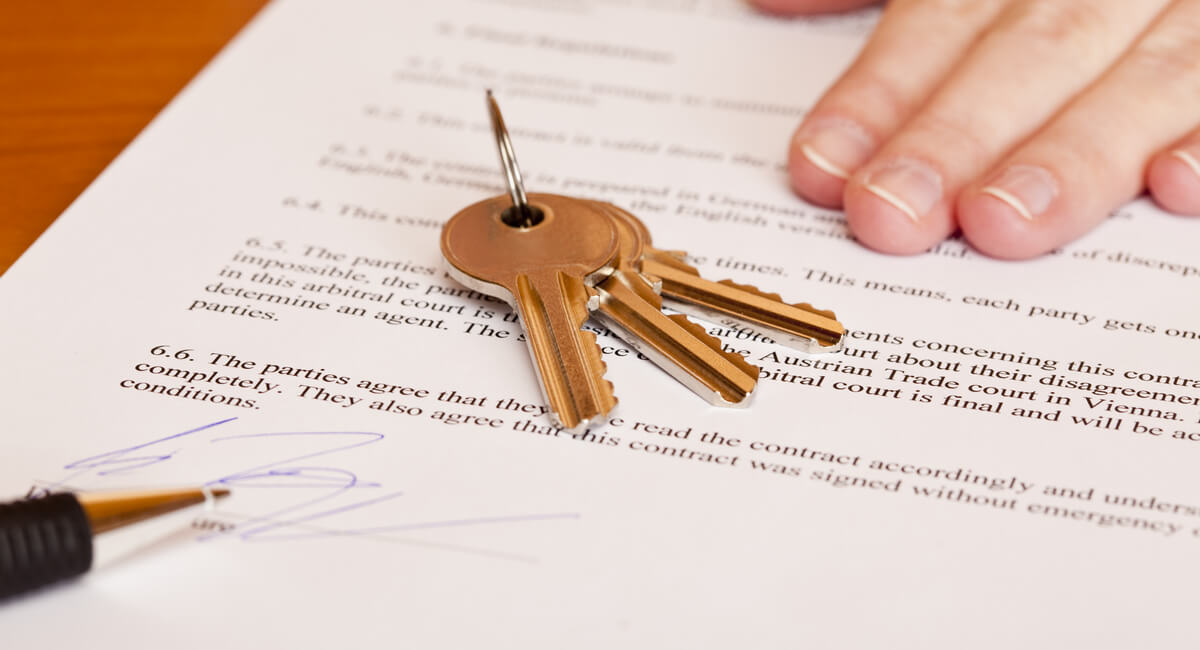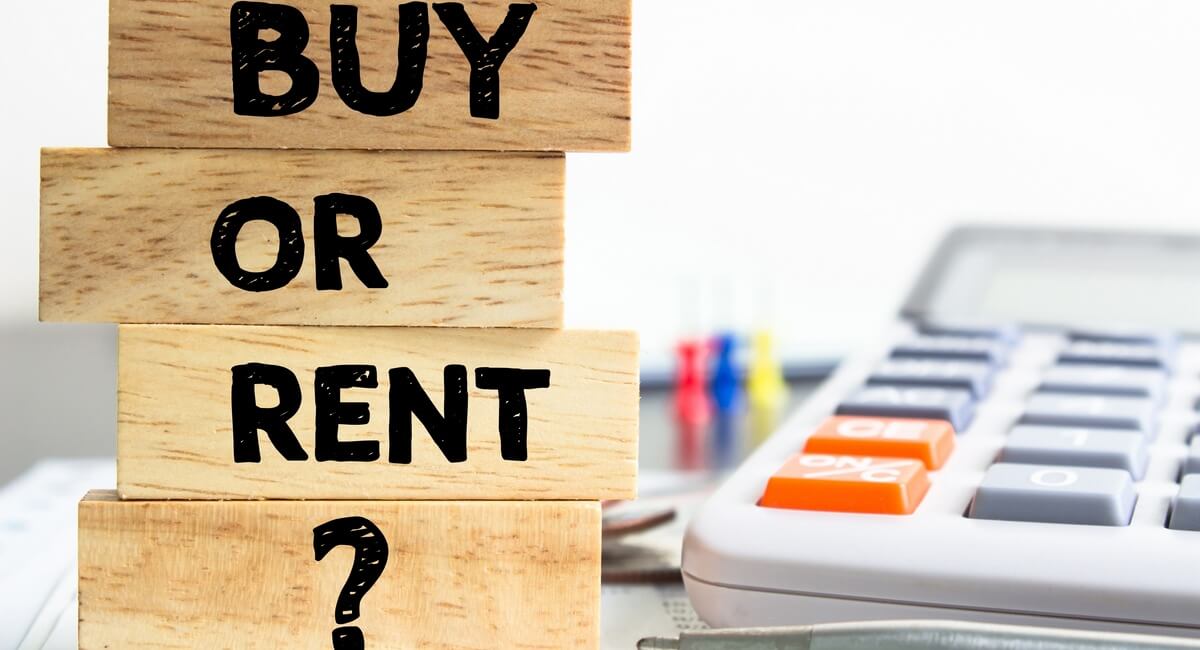As more and more baby boomers reach retirement age, many are choosing to sell their family homes so they can downsize, relocate, or save on housing costs. The decision between renting or buying a new home after selling your family home can be a difficult one to grapple with. You’ve been used to homeownership for decades, but renting offers a number of benefits, especially for those who are advancing in age. If you’re planning to sell your family home, you should carefully consider the pros and cons of renting and buying so that you make the right choice for yourself and your family.

Advantages of Renting After Selling
Transitioning from owning your home to renting one is a significant change. However, many baby boomers choose to rent an apartment or house when they retire instead of purchasing their next home. Here are some key benefits of renting after you sell your house:
1. Flexibility of Location
If you’re considering relocating after you sell your house, renting may be your best option. Moving to a new state or city is always risky. Until you’ve actually lived there for several months, you won’t know for sure if the location is the right fit. Renting for at least a year or two after you sell your home gives you more flexibility. If you decide that you don’t like your new location, moving out of a rental at the end of the lease is far easier than listing and selling a home.
2. Apartment Amenities
Many high-end apartment complexes offer amenities that can be very appealing to baby boomers. You could look for an apartment with a pool, fitness center, parking garage, security, or other amenities. Having these features nearby can greatly elevate your quality of life as you enter retirement.
3. Fewer Maintenance Responsibilities
One of the greatest benefits of renting is that you have far fewer maintenance responsibilities than you do when you own your home. This is especially valuable for retirees who physically struggle to complete home maintenance or those who simply don’t like the hassle. When you rent, your landlord should take care of lawn care, snow removal, repairs, and preventative maintenance, saving you a lot of money and stress.
4. Free Up Funds for Other Investments
Property is an excellent investment, but there may be cases where it’s wise to free up your funds for other purposes. If you’ve owned your home for many years, you’ll probably get a sizable influx of cash when you sell it. Instead of purchasing another property, you could use these funds for other investments or to pay off debt.

Disadvantages of Renting After Selling
Although renting has several benefits for baby boomers, there are also some downsides. Here are some disadvantages of renting that you should keep in mind:
1. Unpredictable Rent Increases
If you buy a home with a fixed-rate mortgage, your monthly payment will change very little over the lifespan of the loan. You may see some small increases if tax rates change, but otherwise, you know what you’ll be paying for years to come. As a renter, you won’t have as much security. Rent typically increases every year, and unfortunately, it can be impossible to predict how much it will change. This can be incredibly stressful for older individuals or couples who are living on a fixed income.
2. Loss of Privacy
When you live in an apartment or condo, you inevitably will have less privacy than you do when you live in a house. You’ll have to deal with neighbors in close proximity whose schedules or lifestyles may not align with your own. This can be a difficult adjustment after living in your family home for many years.
3. Less Control Over Your Home
As a homeowner, you can do practically anything you want to your house. You can paint the walls, install carpeting, upgrade the appliances, or make other changes that suit your needs. As a renter, you have much less control over the property. Some landlords allow tenants to make minor cosmetic changes, but you’ll probably need to seek approval and reverse the changes when you move out.

Advantages of Buying After Selling
Buying a new house after selling your family home can be a preferable option for many baby boomers. Because you’ve experienced the benefits of homeownership for so long, buying your next home can make for an easier transition. The following are some of the advantages of buying after selling:
1. Fixed Monthly Payment
With a fixed mortgage rate, your monthly payment will stay mostly consistent year after year. Even as the value of the home increases with time, your payment will remain the same. This offers a great deal of financial security throughout your retirement. If you owned your family home outright before you sold it, you might even be able to purchase your next home in full, eliminating your housing payment altogether.
2. Continue to Build Equity
It’s critical for baby boomers to maintain their net worth so that they have financial protection as they retire. For many families, the home is the biggest asset in their possession. When you use the proceeds from your home sale to buy another property, you maintain equity. Not only does this increase your own financial security, but it can help you build generational wealth to pass onto your children or other loved ones.
3. Complete Control Over Your Property
When you own your home, you’re free to renovate however and whenever you want. You have the opportunity to turn the house into your dream home. This level of control and flexibility is impossible to achieve as a renter.

Disadvantages of Buying After Selling
Purchasing another home after selling your family home does present some challenges. Here are some of the disadvantages to be aware of:
1. Difficult Timing
Purchasing a home is usually a lengthier and more difficult process than finding a rental. If you plan to buy a property after selling your family house, you might be working on a tight schedule. Failing to find a new home could result in your home sale getting delayed or in you purchasing a property that isn’t perfect for yourself and your family.
2. Potential for High Mortgage Rate
Current mortgage rates have a major impact on your monthly housing payment. If you’re selling your family home when rates are high, you might get locked into a new mortgage with an uncomfortably high rate. You could refinance when the rates drop, but refinancing as a retiree has its own downsides.
3. Maintenance Responsibilities
As a homeowner, you’re responsible for all the care and upkeep of your property. Although you’re used to the responsibilities of homeownership, maintenance tasks can get more difficult as you age. You may find it harder and harder to take care of the home on your own and hiring others to do the work could put a strain on your budget.
There are benefits and drawbacks to both renting and buying a house after you sell your family home. If you want fewer responsibilities as you retire, renting may be the preferable option. Renting is also a great choice if you’re testing out a new location or plan to move again in the next few years. However, homeownership usually offers more control and financial stability. To decide which option is better, you have to consider your own lifestyle, needs, wants, and priorities.


